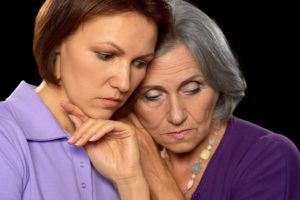
Types of Elder Abuse
Physical abuse is the use of some type of physical force on an elderly person that can be expected to cause bodily harm. This can include striking a person with a hand, foot, or object. It can also include physical punishment, the use of restraints, the improper use of medication, and force-feeding. Signs of physical abuse can include unexplained injuries, fear of caregivers, and anxiety.
Emotional or psychological abuse is the infliction of pain by verbal or nonverbal means. This can include verbal assaults, humiliation, threats, and intimidation. Emotional abuse can also include giving the “silent treatment” or keeping an individual socially isolated. Signs of emotional abuse can include changes in mood and personality, fear of care providers, and withdrawal from one’s support system.
Financial abuse is the illegal or improper use of the elderly person’s resources or property. This may include forging the person’s signature, stealing cash, coercing the elderly person into signing a document they don’t understand, and stealing their possessions. Signs of financial abuse include unexplained financial transactions, a discrepancy between the standard of living and the available assets, and missing personal property items.
What can you do?
If you suspect that your loved one is being abused in a nursing home, you should take action immediately.
- If you have reason to believe that the elderly person is in imminent danger, contact the police.
- If you don’t suspect that the person is in immediate danger but believe that abuse is occurring, you can contact the New York Bureau of Adult Protective Services.
- Consider moving your loved one to another facility as soon as possible.
- Gather evidence—talk to other residents, gather medical records, take pictures of recent injuries, and in the case of financial abuse, gather bank records and credit card statements.
- Contact an attorney who specializes in nursing home neglect and abuse.
If you believe your loved one has been abused in a nursing home, you need an attorney to investigate your claim. At Bonina & Bonina, P.C., we have over 50 years of experience representing injured New Yorkers in claims against nursing homes. Contact us online or call us at 1-888-MED-LAW1 to schedule a free consultation. Home and hospital visits are available. Se habla Español.
